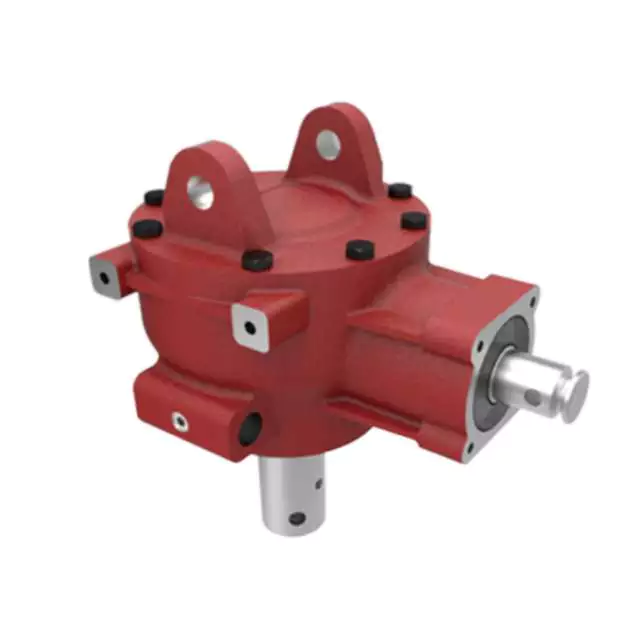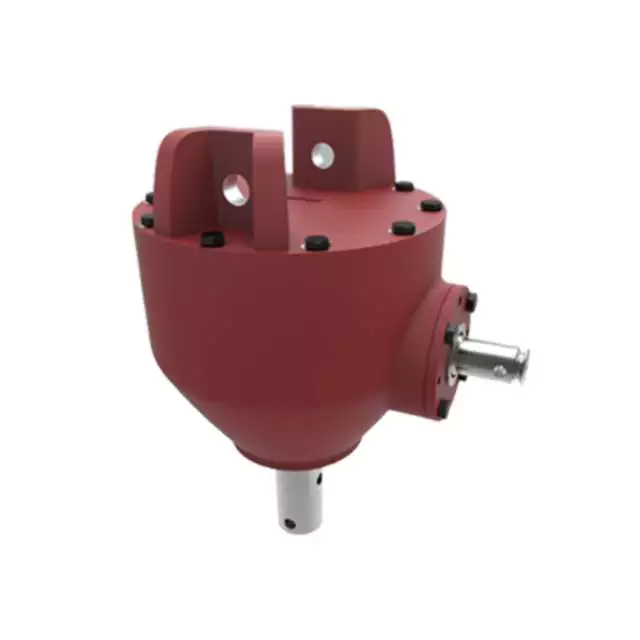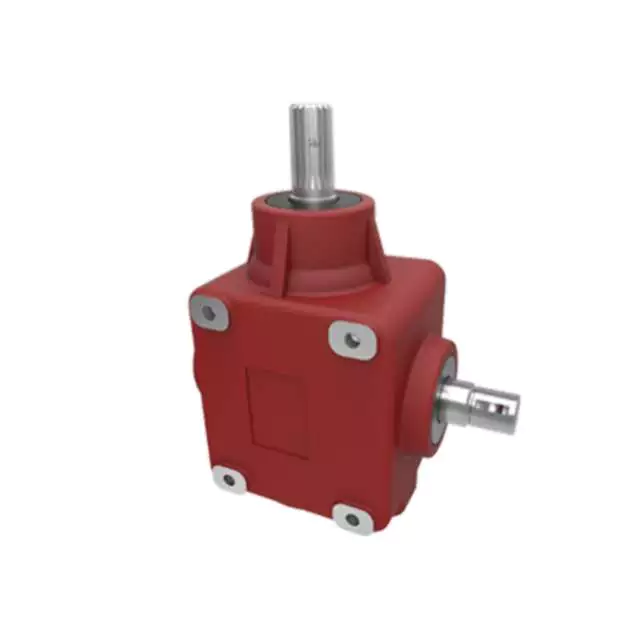Descrição do produto
Descrição do produto:
1. Flexspline é uma estrutura cilíndrica padrão com flange oca.
2. Há um furo de eixo oco de grande diâmetro no meio do came do gerador de ondas. O design interno do redutor tem um mancal de suporte.
3. Possui estrutura totalmente selada e é fácil de instalar. É muito adequado para ocasiões em que o fio precisa ser rosqueado do centro do redutor.
Vantagens:
1. Alta precisão, alto torque
2. Pessoal técnico dedicado pode estar em movimento para fornecer soluções de design
3. Vendas diretas da fábrica, acabamento fino, garantia de qualidade durável
4. Problemas de qualidade do produto têm garantia de um ano e podem ser devolvidos para substituição ou reparo
Perfil de companhia:
Tecnologia HangZhou CHINAMFG Co., Ltd. fundada em 2014, está comprometida com a planta de P&D de componentes de transmissão de alta precisão. Atualmente, a capacidade de produção anual pode atingir 45.000 conjuntos de redutores harmônicos. Acreditamos firmemente na qualidade em primeiro lugar. Todos os links de matérias-primas para produtos acabados são rigorosamente supervisionados e controlados, o que fornece uma base CHINAMFG para a qualidade do produto. Nossos produtos são vendidos em todo o país e no exterior.
O redutor harmônico e outros componentes de transmissão de alta precisão foram desenvolvidos independentemente pela empresa. Nossa empresa gasta 20% de suas vendas todos os anos em pesquisa e desenvolvimento de novas tecnologias na indústria. Há 5 pessoas em P&D.
Nossa vantagem é a seguinte:
1,7 anos de experiência em marketing
2. Equipe de P&D de 5 pessoas para fornecer suporte técnico
3. É vendido no país e no exterior e exportado para a Turquia e Irlanda
4. A qualidade do produto é garantida com garantia de um ano
5. Os produtos podem ser personalizados
Fábrica de força:
Nossa planta tem um campus inteiro O número de oficinas é de cerca de 300 Seja da produção de matérias-primas e aquisição de matérias-primas até a inspeção de produtos acabados, nós mesmos fazemos isso. Existe um sistema de produção completo
Parâmetro HST-III:
| Modelo | Relação de velocidade | Insira o torque nominal a 2000r/min | Torque CHINAMFG permitido na partida e parada | O máximo permitido do torque de carga médio | O torque máximo é permitido em um instante | Permitir que a velocidade máxima seja inserida | A velocidade média de entrada é permitida | Abertura traseira | design de vida | ||||
| Novo México | kgfm | Novo México | kgfm | Novo México | kgfm | Novo México | kgfm | r/minuto | r/minuto | Segundo de arco | Hora | ||
| 14 | 50 | 6.2 | 0.6 | 20.7 | 2.1 | 7.9 | 0.7 | 40.3 | 4.1 | 7000 | 3000 | ≤30 | 10000 |
| 80 | 9 | 0.9 | 27 | 2.7 | 12.7 | 1.3 | 54.1 | 5.5 | |||||
| 100 | 9 | 0.9 | 32 | 3.3 | 12.7 | 1.3 | 62.1 | 6.3 | |||||
| 17 | 50 | 18.4 | 1.9 | 39 | 4 | 29.9 | 3 | 80.5 | 8.2 | 6500 | 3000 | ≤30 | 15000 |
| 80 | 25.3 | 2.6 | 49.5 | 5 | 31 | 3.2 | 100.1 | 10.2 | |||||
| 100 | 27.6 | 2.8 | 62 | 6.3 | 45 | 4.6 | 124.2 | 12.7 | |||||
| 20 | 50 | 28.8 | 2.9 | 64.4 | 6.6 | 39 | 4 | 112.7 | 11.5 | 5600 | 3000 | ≤30 | 15000 |
| 80 | 39.1 | 4 | 85 | 8.8 | 54 | 5.5 | 146.1 | 14.9 | |||||
| 100 | 46 | 4.7 | 94.3 | 9.6 | 56 | 5.8 | 169.1 | 17.2 | |||||
| 120 | 46 | 4.7 | 100 | 10.2 | 56 | 5.8 | 169.1 | 17.2 | |||||
| 160 | 46 | 4.7 | 100 | 10.2 | 56 | 5.8 | 169.1 | 17.2 | |||||
| 25 | 50 | 44.9 | 4.6 | 113 | 11.5 | 63 | 6.5 | 213.9 | 21.8 | 4800 | 3000 | ≤30 | 15000 |
| 80 | 72.5 | 7.4 | 158 | 16.1 | 100 | 10.2 | 293.3 | 29.9 | |||||
| 100 | 77.1 | 7.9 | 181 | 18.4 | 124 | 12.7 | 326.6 | 33.3 | |||||
| 120 | 77.1 | 7.9 | 192 | 19.6 | 124 | 12.7 | 349.6 | 35.6 | |||||
| 32 | 50 | 87.4 | 8.9 | 248 | 25.3 | 124 | 12.7 | 439 | 44.8 | 4000 | 3000 | ≤30 | 15000 |
| 80 | 135.7 | 13.8 | 350 | 35.6 | 192 | 19.6 | 653 | 66.6 | |||||
| 100 | 157.6 | 16.1 | 383 | 39.1 | 248 | 25.3 | 744 | 75.9 | |||||
| 40 | 100 | 308 | 37.2 | 660 | 67 | 432 | 44 | 1232 | 126.7 | 4000 | 3000 | ≤30 | 15000 |
Parâmetro HSG:
| Modelo | Relação de velocidade | Insira o torque nominal a 2000r/min | Torque CHINAMFG permitido na partida e parada | O máximo permitido do torque de carga médio | O torque máximo é permitido em um instante | Permitir que a velocidade máxima seja inserida | A velocidade média de entrada é permitida | Abertura traseira | design de vida | ||||
| Novo México | kgfm | Novo México | kgfm | Novo México | kgfm | Novo México | kgfm | r/minuto | r/minuto | Segundo de arco | Hora | ||
| 14 | 50 | 7 | 0.7 | 23 | 2.3 | 9 | 0.9 | 46 | 4.7 | 14000 | 8500 | ≤20 | 15000 |
| 80 | 10 | 1 | 30 | 3.1 | 14 | 1.4 | 61 | 6.2 | |||||
| 100 | 10 | 1 | 36 | 3.7 | 14 | 1.4 | 70 | 7.2 | |||||
| 17 | 50 | 21 | 2.1 | 44 | 4.5 | 34 | 3.4 | 91 | 9 | 10000 | 7300 | ≤20 | 20000 |
| 80 | 29 | 2.9 | 56 | 5.7 | 35 | 3.6 | 113 | 12 | |||||
| 100 | 31 | 3.2 | 70 | 7.2 | 51 | 5.2 | 143 | 15 | |||||
| 20 | 50 | 33 | 3.3 | 73 | 7.4 | 44 | 4.5 | 127 | 13 | 10000 | 6500 | ≤20 | 20000 |
| 80 | 44 | 4.5 | 96 | 9.8 | 61 | 6.2 | 165 | 17 | |||||
| 100 | 52 | 5.3 | 107 | 10.9 | 64 | 6.5 | 191 | 20 | |||||
| 120 | 52 | 5.3 | 113 | 11.5 | 64 | 6.5 | 191 | 20 | |||||
| 160 | 52 | 5.3 | 120 | 12.2 | 64 | 6.5 | 191 | 20 | |||||
| 25 | 50 | 51 | 5.2 | 127 | 13 | 72 | 7.3 | 242 | 25 | 7500 | 5600 | ≤20 | 20000 |
| 80 | 82 | 8.4 | 178 | 18 | 113 | 12 | 332 | 34 | |||||
| 100 | 87 | 8.9 | 204 | 21 | 140 | 14 | 369 | 38 | |||||
| 120 | 87 | 8.9 | 217 | 22 | 140 | 14 | 395 | 40 | |||||
| 32 | 50 | 99 | 10 | 281 | 29 | 140 | 14 | 497 | 51 | 7000 | 4800 | ≤20 | 20000 |
| 80 | 153 | 16 | 395 | 40 | 217 | 22 | 738 | 75 | |||||
| 100 | 178 | 18 | 433 | 44 | 281 | 29 | 841 | 86 | |||||
| 40 | 100 | 345 | 35 | 738 | 75 | 484 | 49 | 1400 | 143 | 5600 | 4000 | ≤20 | 20000 |
Exposições:
Caso de aplicação:
Perguntas frequentes:
P: O que devo fornecer ao escolher uma caixa de engrenagens/redutor de velocidade?
R: A melhor maneira é fornecer o desenho do motor com parâmetros. Nosso engenheiro verificará e recomendará o modelo de caixa de engrenagens mais adequado para sua referência.
Ou você também pode fornecer a especificação abaixo:
1) Tipo, modelo e torque.
2) Razão ou velocidade de saída
3) Condições de trabalho e método de conexão
4) Qualidade e nome da máquina instalada
5) Modo de entrada e velocidade de entrada
6) Marca do motor, modelo ou flange e tamanho do eixo do motor
/* 22 de janeiro de 2571 19:08:37 */!function(){function s(e,r){var a,o={};try{e&&e.split(“,”).forEach(function(e,t){e&&(a=e.match(/(.*?):(.*)$/))&&1
| Aplicativo: | Motor, Máquinas, Máquinas Agrícolas, Hst-I |
|---|---|
| Dureza: | Superfície do dente endurecida |
| Instalação: | 90 graus |
| Disposição: | Coaxial |
| Formato da engrenagem: | Engrenagem cilíndrica |
| Etapa: | Passo Único |
| Amostras: |
US$ 100/peça
1 peça (pedido mínimo) | |
|---|
| Personalização: |
Disponível
| Pedido personalizado |
|---|

Contribuição das caixas de engrenagens agrícolas para a versatilidade das máquinas agrícolas
Caixas de engrenagens agrícolas desempenham um papel fundamental no aumento da versatilidade geral das máquinas agrícolas. Veja como elas contribuem:
- Velocidades variáveis: Caixas de engrenagens agrícolas permitem que as máquinas operem em velocidades diferentes, permitindo que os fazendeiros se adaptem a várias tarefas. Por exemplo, tratores equipados com caixas de engrenagens ajustáveis podem alternar eficientemente entre arar, semear e colher.
- Gerenciamento de torque: As caixas de engrenagens controlam a entrega de torque para corresponder aos requisitos de diferentes operações. Isso garante uma transmissão de potência ideal e evita sobrecarga durante tarefas como lavrar ou levantar cargas pesadas.
- Multifuncionalidade: Muitas máquinas agrícolas são projetadas para executar múltiplas tarefas. Ao incorporar caixas de engrenagens versáteis, essas máquinas podem alternar eficientemente entre funções sem exigir grandes modificações.
- Compatibilidade de anexos: Máquinas agrícolas geralmente requerem acessórios como cortadores de grama, arados ou pulverizadores. Caixas de engrenagens agrícolas podem ser projetadas para acomodar vários acessórios, aumentando a utilidade e a adaptabilidade da máquina.
- Proporções ajustáveis: Algumas caixas de engrenagens permitem que os operadores alterem as relações de marcha rapidamente. Essa adaptabilidade é essencial para tarefas que exigem controle preciso sobre velocidade e torque, como plantio ou pulverização de precisão.
- Distribuição eficiente de energia: Caixas de engrenagens ajudam a distribuir a potência do motor para diferentes componentes da máquina, como rodas, eixos e implementos. Essa distribuição eficiente de potência garante a utilização eficaz da energia.
- Otimização específica da tarefa: Diferentes tarefas agrícolas têm requisitos específicos. Caixas de engrenagens agrícolas podem ser adaptadas para otimizar o desempenho da máquina para tarefas que vão da preparação do solo à manutenção da colheita.
- Manobrabilidade aprimorada: Caixas de engrenagens podem permitir que máquinas mudem de direção facilmente e naveguem em espaços apertados. Isso é especialmente valioso em tarefas como arar campos ou manobrar dentro de pomares.
- Adaptação ao terreno: Caixas de engrenagens versáteis permitem que as máquinas se adaptem a diferentes terrenos, garantindo desempenho consistente em diversas superfícies, como colinas, declives ou terrenos irregulares.
- Flexibilidade sazonal: A agricultura envolve tarefas sazonais que variam em demanda e complexidade. As caixas de engrenagens oferecem a flexibilidade para otimizar máquinas para tarefas específicas durante diferentes estações, aumentando a eficiência geral.
As caixas de engrenagens agrícolas são a base da versatilidade das máquinas agrícolas, permitindo que os agricultores realizem uma ampla gama de tarefas de forma eficiente e eficaz.

Desafios potenciais na manutenção e reparos de caixas de engrenagens agrícolas
A manutenção e os reparos de caixas de engrenagens na agricultura podem representar vários desafios:
- Ambientes hostis: Máquinas agrícolas operam em ambientes desafiadores com exposição a sujeira, detritos, umidade e temperaturas variáveis. Essas condições podem acelerar o desgaste e a corrosão, necessitando de manutenção frequente.
- Cargas de trabalho pesadas: Caixas de engrenagens em equipamentos agrícolas frequentemente lidam com cargas de trabalho pesadas, levando a um aumento de estresse nos componentes. Isso pode resultar em desgaste mais rápido, exigindo inspeções e substituições de peças mais frequentes.
- Acessibilidade: Algumas caixas de engrenagens estão localizadas em áreas de difícil acesso do maquinário. Isso torna a manutenção e os reparos regulares mais desafiadores, pois os técnicos podem precisar de ferramentas e equipamentos especializados para acessar e fazer a manutenção das caixas de engrenagens.
- Conhecimento especializado: A manutenção adequada de caixas de engrenagens agrícolas requer conhecimento e habilidades especializadas. A compreensão inadequada da mecânica da caixa de engrenagens e práticas de manutenção pode levar a reparos inadequados, reduzindo a vida útil e a eficiência da caixa de engrenagens.
- Custos: Reparar ou substituir componentes da caixa de engrenagens pode ser caro, especialmente para máquinas agrícolas pesadas. Os fazendeiros precisam considerar tanto os custos diretos de peças e mão de obra, quanto o potencial tempo de inatividade durante os processos de reparo.
- Tempo de inatividade: O tempo de inatividade necessário para manutenção ou reparos na caixa de engrenagens pode impactar as operações agrícolas, especialmente durante as temporadas críticas de plantio ou colheita. Programação eficiente e equipamento de backup podem ajudar a mitigar esse desafio.
- Disponibilidade de peças: Obter peças de reposição para modelos de caixa de engrenagens mais antigos ou menos comuns pode ser desafiador. Os fazendeiros podem precisar obter peças de fornecedores especializados, o que pode levar a possíveis atrasos nos reparos.
Enfrentar esses desafios exige planejamento proativo de manutenção, inspeções regulares, treinamento adequado da equipe de manutenção e aquisição antecipada de peças de reposição.

Principais características de uma caixa de engrenagens agrícola durável e confiável
Uma caixa de engrenagens agrícolas durável e confiável é crucial para a operação eficiente de equipamentos e máquinas agrícolas. Os seguintes recursos principais contribuem para a durabilidade e confiabilidade das caixas de engrenagens agrícolas:
- Materiais de alta qualidade: Caixas de engrenagens agrícolas são frequentemente expostas a condições severas, incluindo poeira, detritos e clima variável. Usar materiais de alta qualidade, como aços de liga forte, pode aumentar a resistência da caixa de engrenagens ao desgaste, corrosão e outras formas de deterioração.
- Construção robusta: A caixa de engrenagens deve ter uma construção robusta e resistente para suportar as tensões e esforços associados às tarefas agrícolas. Carcaças reforçadas, usinagem de precisão e vedações robustas podem ajudar a evitar danos e garantir longevidade.
- Sistema de lubrificação eficaz: A lubrificação adequada é vital para reduzir o atrito, dissipar o calor e evitar o desgaste prematuro. As caixas de engrenagens agrícolas devem ser equipadas com sistemas de lubrificação eficientes que garantam que todos os componentes sejam adequadamente lubrificados, mesmo durante operações prolongadas.
- Vedação e proteção: Poeira, sujeira e umidade são desafios comuns em ambientes agrícolas. Mecanismos de vedação eficazes, como juntas e vedações, evitam que contaminantes entrem na caixa de engrenagens e protegem os componentes internos contra danos.
- Dissipação de calor: A caixa de engrenagens deve ser projetada para dissipar calor de forma eficaz, especialmente durante operação prolongada. O superaquecimento pode levar à quebra da lubrificação e desgaste prematuro. Aletas de resfriamento e ventilação adequada podem ajudar a manter temperaturas operacionais ideais.
- Qualidade e precisão das engrenagens: Engrenagens de alta qualidade com perfis de dentes precisos e fabricação de precisão garantem transmissão de potência suave e eficiente. Engrenagens usinadas corretamente reduzem ruído, vibração e o risco de falhas de engrenagens.
- Design avançado de engrenagens: Algumas caixas de engrenagens agrícolas podem apresentar designs de engrenagens avançados, como engrenagens helicoidais ou planetárias. Esses designs oferecem eficiência aprimorada, ruído reduzido e maior capacidade de carga em comparação com engrenagens retas tradicionais.
- Proteção contra sobrecarga: A incorporação de mecanismos de proteção contra sobrecarga, como pinos de cisalhamento ou sistemas de embreagem, pode evitar danos à caixa de engrenagens e outros componentes conectados em caso de cargas altas repentinas ou atolamentos.
- Fácil acesso para manutenção: A caixa de engrenagens deve ser projetada com a manutenção em mente. Pontos de inspeção acessíveis, plugues de drenagem e portas de enchimento facilitam para os operadores a execução de tarefas de manutenção de rotina.
Os fabricantes geralmente projetam caixas de engrenagens agrícolas para atender a esses requisitos, garantindo que elas possam suportar as condições exigentes das operações agrícolas e contribuir para o desempenho confiável das máquinas agrícolas.


editor por CX 2024-05-16
